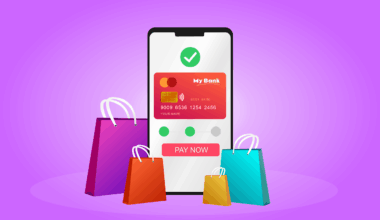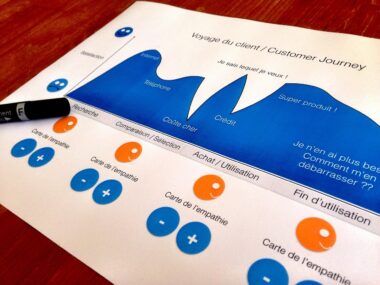How to Leverage Social Media for Successful B2C Events
In today’s digital age, leveraging social media is essential for B2C events to achieve exceptional participation and brand visibility. Social media platforms allow businesses to engage with potential attendees and create buzz around their event. To effectively utilize these platforms, focus on identifying relevant channels for your target audience. For instance, platforms like Instagram and Facebook are great for visually-driven events, whereas LinkedIn may work better for professional gatherings. Create an engaging content strategy that encompasses captivating visuals, dynamic videos, and informative posts to draw interest. Utilize features such as polls, stories, and live sessions to maintain interaction pre-event. Establish a unique event hashtag that not only serves as a search tool but also boosts engagement as people share their experiences. Encourage the audience to engage with your posts by asking questions, encouraging shares, and offering incentives for participation. Lastly, make sure to respond to comments and inquiries promptly to demonstrate your commitment to attendee experience, allowing for a thriving online community around your event.
Building Anticipation Before the Event
Building anticipation is crucial for B2C events and social media is the perfect tool for this. Start promoting your event weeks or even months in advance. Create excitement with teasers that reveal snippets of what attendees can expect. Share short videos or behind-the-scenes images that provide insights into preparations, showcasing the efforts being made. Moreover, collaboration with influencers or industry experts can amplify your reach. Influencers help build credibility and broaden your audience, thereby attracting more participants. Additionally, consider hosting giveaways or contests that require participants to share the event on their social media profiles. This can dramatically increase visibility as participants encourage their followers to enter. Promote early bird registration deals or other discounted offers exclusively through social channels. Utilize countdown posts leading up to the event, reminding followers about why they should attend, which reinforces urgency and interest. Consistently update your audience about speakers, activities, and other exciting event details. This consistent engagement fosters community, making potential attendees feel valued and connected to the event long before it arrives.
On the event day, utilizing social media effectively can significantly enhance the experience for attendees. Live coverage is paramount; this not only involves posting to social media feeds but also utilizing features like Stories or live streaming sessions. Share moments that reflect the energy and excitement of the event, such as speaker highlights and audience reactions. Moreover, ensure there are designated social media zones where attendees can take photos or engage with on-site hashtags. Encourage them to share their experiences in real-time by reposting user-generated content that displays their joy and engagement. Moreover, consider integrating social media walls or displays that showcase live updates, hashtags, and attendees’ posts. This encourages immediate participation while creating a sense of community. Run contests or challenges during the event, asking attendees to post using specific hashtags for a chance to win prizes. Ultimately, the goal is to create a stronger connection, making attendees feel they are part of a larger community surrounding your brand and event. This social interaction turns an ordinary event experience into something enjoyable and memorable.
Post-Event Engagement and Follow-Up
Post-event engagement is just as important as the lead-up to the event, maintaining momentum and leveraging the moments captured during the occasion. After your event concludes, share highlights through engaging posts, photo albums, video recaps, and testimonials from attendees. Encourage attendees to share their own experiences using the event hashtag, creating a rich tapestry of content that showcases various perspectives. This not only helps to solidify the community experience but also cultivates a sense of loyalty among your audience. Follow up with personalized thank-you messages and links to additional resources or post-event surveys. Surveys can provide invaluable feedback for improving future events and understanding attendee experiences. Share results from these surveys on social media to show that you value their opinions. Keeping the conversation going through regular updates and insights will ensure continued relevance and visibility. Create valuable asset materials like whitepapers or summaries from presentations discussed at the event and share them using your social channels. This shows commitment to sharing knowledge and benefits attendees beyond the main event.
Incorporating social media into your overall event marketing strategy not only boosts visibility but also builds genuine relationships with potential and current customers. Providing valuable content that resonates with your audience can effectively enhance their perception of your brand. Effective content strategies include creative posts that reflect your brand’s values while encouraging interaction. Think about creating polls, questions, or entertaining posts that invite followers to engage. Utilize analytics tools to track engagement metrics; this data will enable you to refine your approach for future events. Monitoring successful campaigns and determining the type of content that garners the most interactions can guide your future strategies better. Consistently evaluating and adapting your social media efforts ensures you remain ahead of trends and shifting consumer preferences. Embrace user-generated content by sharing posts that highlight attendee experiences or opinions from the event. Genuine endorsements help build trust and foster community. By encouraging interaction and ensuring a dynamic online presence, your events can evolve from one-time occurrences to key industry highlights, creating loyalty and anticipation around future events.
Analyzing Results to Measure Success
To truly understand the impact of your social media strategy on your B2C events, analyze the results carefully. Track key performance indicators (KPIs) such as engagement rates, impressions, reach, and conversions. Data analytics tools designed for social media can greatly simplify this process, providing you insights into how well your posts performed and how attendees interacted. Utilize post-event surveys not only for feedback but also to analyze specific questions about how attendees found out about the event. Comparing this data to past events allows you to gauge what worked effectively, and how can areas be improved. Analyzing which platforms delivered the highest levels of engagement can show you where to focus in future marketing efforts. Understanding the demographics of engaged users can help tailor future event promotions to suit their interests. Implementing these lessons learned ensures that your strategies become increasingly refined. It’s not just about measurement; this data ultimately shapes the storytelling aspect of subsequent events, allowing for a more resonant message shared through social media based on past successes and areas for growth.
In conclusion, leveraging social media for successful B2C events is a multifaceted approach that begins well before the event takes place and continues even after it concludes. By implementing a strategic plan that encompasses pre-event anticipation, live engagement, and post-event follow-up, brands can enrich their connections with customers. Using powerful visuals, storytelling, and meaningful interactions fosters a sense of community among attendees. Moreover, measuring engagement and adjusting future strategies based on these insights can streamline the marketing process for future events. Remember to adapt your social media strategy by staying informed about evolving trends in the digital landscape. Giving attendees the ability to express themselves and share moments allows for organic growth in community engagement. Successful B2C events, therefore, aren’t solely about the experiences within the event itself; they encompass a continuum of interaction that begins the moment you start planning and extends long after the event ends. By enhancing every aspect through social media, you create memorable experiences, build brand loyalty, and ignite word-of-mouth conversations that resonate well beyond the confines of your event.





